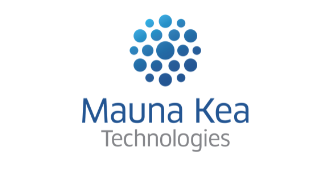Pancreatic cyst abstracts build on endorsement of Cellvizio® by Europe’s leading endoscopy society, ESGE, as a key tool for improving pancreatic cyst diagnostic accuracy
AI, pancreatic cancer, and food intolerance once again headline wide range of Cellvizio® abstracts at gastroenterology’s largest international meeting
Paris and Boston, April 28, 2025 – 5:45 p.m. CEST – Mauna Kea Technologies (Euronext Growth: ALMKT), inventor of Cellvizio®, the multidisciplinary probe and needle-based confocal laser endomicroscopy (p/nCLE) platform, today announced another milestone year at the Digestive Disease Week® (DDW) Conference, being held from May 3-6, 2025 in San Diego, California with the presentation of at least 8 abstracts supporting the clinical value of Cellvizio® in key indications. These abstracts focus on pancreatic cystic lesions and pancreatic cancer, food intolerance, artificial intelligence, and other gastrointestinal disorders. Studies and presentations highlight how the use of Cellvizio® directly impacts patient management and positive outcomes.
Members of Mauna Kea’s executive team will be present at DDW and meeting with physicians, industry partners, and societies, and welcome the opportunity to discuss the Company’s recent achievements and future opportunities as announced in recent press releases.
“Each year, DDW is a not-to-be-missed meeting bringing the entire gastroenterology healthcare community together, and we are proud yet again to have such a wide range of independent scientific abstracts and data about Cellvizio on display, especially in areas which have significant unmet patient needs,” said Sacha Loiseau, Ph.D., Chairman and Chief Executive Officer of Mauna Kea Technologies. “Cellvizio’s role in the accurate classification and risk stratification of pancreatic cysts is advancing the entire field forward for the management of patients at risk of pancreatic cancer. Moreover, the body of evidence for food intolerance identification and management has grown substantially, building a large opportunity for CellTolerance® growth.”
Highlighted featured presentations:
Saturday, May 3
- 8:12am-8:19am
Towards Automating Risk Stratification of Intraductal Papillary Mucinous Neoplasms: Artificial Intelligence Advances Beyond Human Expertise with Confocal Laser Endomicroscopy
- 12:30pm-1:30pm
Artificial Intelligence Advances Digital Pathomics for Confocal Endomicroscopy-Guided Diagnosis of Pancreatic Cysts
- 12:30pm-1:30pm
Intracystic Capillary Morphology as a Novel Approach to Risk Stratification of Intraductal Papillary Mucinous Neoplasms In Confocal Endomicroscopy: Limitations of Human Performance and Insights from Artificial Intelligence
- 3:00pm-3:15pm
Confocal Laser Endomicroscopy Captures Local, Food-Induced Reactions at the Level of the Duodenal Mucosa in Functional Dyspepsia, That Cannot Be Translated into Permeability Alterations or Changes in Mast Cell Activation Ex Vivo
- 4:30pm-4:45pm
Decoding Papillary Morphology In Intraductal Papillary Mucinous Neoplasms (IPMNs): Morphological, Molecular, And Dysplasia Correlations and Implications for Endomicroscopy-Guided Risk Assessment
- 4:30pm-4:45pm
Targeted Elimination Diet in Eosinophilic Esophagitis Following Identification of Trigger Nutrients Using Confocal Laser Endomicroscopy: Results from a Pilot Trial
Monday, May 5
- 8:42am-8:49am
Is It Time to Refine Our Standards? Insights From a Multicenter Prospective Study on Endoscopic Ultrasound-Guided Confocal Laser Endomicroscopy (EUS-nCLE) For Diagnosing Pancreatic Cystic Lesions
- 10:30am-10:45am
Effects of a Multimodal Treatment Approach in Patients with Longstanding Irritable Bowel Syndrome on Symptom Relief and Barriere Integrity Targeted by Confocal Laser Endomicroscopy: An Exploratory Prospective Observational Clinical Trial
- 12:30pm-1:30pm
Real-Time Intestinal Barrier Assessment by Endocytoscopy and Confocal Laser Endomicroscopy Uniquely Correlates with Multiple Barrier Protein Expression and Reflects the Gut-Brain Axis

